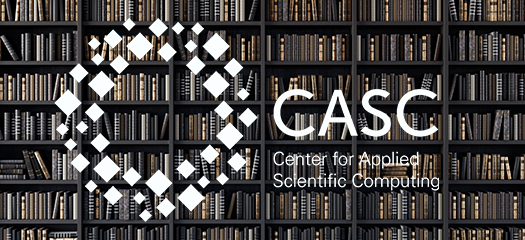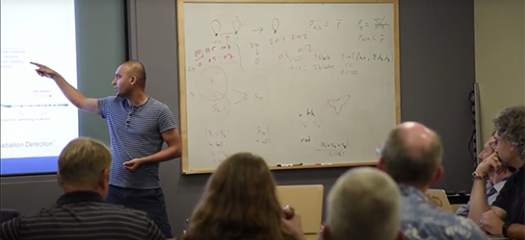The Center for Applied Scientific Computing (CASC) serves as LLNL’s window to the broader computer science, computational physics, applied mathematics, and data science research communities. In collaboration with academic, industrial, and other government laboratory partners, we conduct world-class scientific research and development on problems critical to national security.
CASC applies the power of high performance computing (HPC) and the efficiency of modern computational methods to the realms of stockpile stewardship, cyber and energy security, and knowledge discovery for intelligence applications. Major thrust areas in CASC research include:
- Increasing simulation fidelity by integrating multi-physics and multi-scale models, increasing resolution through advanced numerical methods and more efficient algorithms, and performing uncertainty quantification.
- Creating computing tools and programming environments that will enable and support extreme-scale computing.
- Creating tools to manipulate, analyze, and visualize massive data sets for both the physical sciences and intelligence community applications.
At CASC, a deep understanding of the requirements of our applications partners drives our scientific software development approach. This research is often instantiated in sophisticated algorithms and software that are implemented directly in the application codes or as general-purpose libraries that can be used by many different customers. The resulting feedback leads to more complex and refined questions that demand basic research, restarting the research cycle. Through these deep and extended partnerships with application teams, we ensure the relevance and impact of CASC research.
CASC research attracts attention. CASC employees have helped LLNL research teams win several prestigious honors, including Gordon Bell Awards for excellence in using HPC to solve scientific and engineering problems. R&D Magazine, which honors the 100 most technically significant new products and innovations each year, has also recognized CASC research numerous times.





